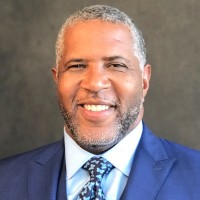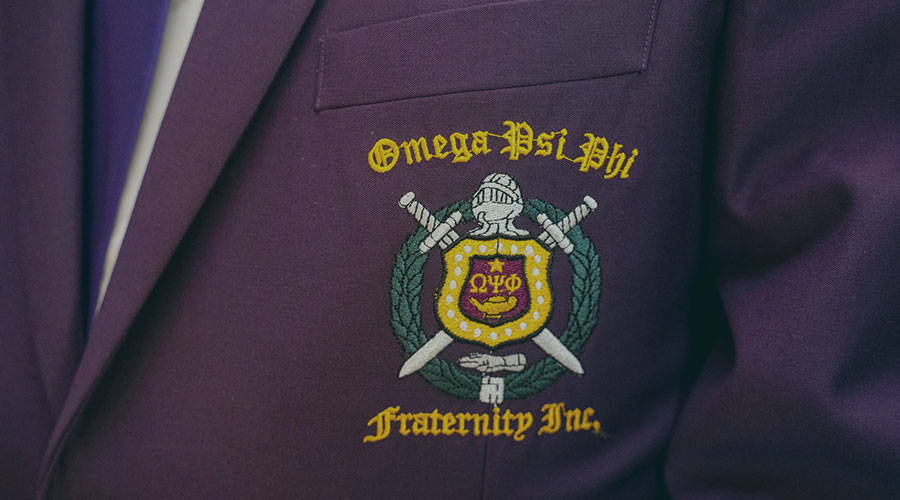Key Takeaways:
- A Black fraternity is a Black Greek organization at a higher education institution, such as a Historically Black College or University (HBCU).
- The five Black fraternities are known as the Divine Nine and include Alpha Phi Alpha Fraternity, Inc.®, Kappa Alpha Psi® Fraternity, Inc, Omega Psi Phi Fraternity, Inc., Phi Beta Sigma Fraternity, Inc. and Iota Phi Theta Fraternity, Inc.®
- Black fraternities are important because they provide a sense of brotherhood and community service and mentorship opportunities for Black students, among other things.
Black fraternities in the U.S. hold a rich history and provide a sense of solidarity, pride and belonging for their members. Yet, the creation of the nine Black fraternities and sororities that make up the National Pan-Hellenic Council (NPHC), or the Divine Nine, stems from exclusion. For decades, Black men were excluded from predominantly white collegiate social organizations. Students from Historically Black Colleges and Universities (HBCUs) and other higher education institutions in the 20th century took a stand and created their own organizations. Now, the Divine Nine boasts members who are changemakers, executives, leaders, entertainers and prominent sports figures.
Here, we dive into the definition of a Black fraternity, the history of Black Greek fraternities and how these Greek-lettered organizations help young Black men grow as philanthropists and in professional spaces. We also discuss the fraternities within the ranks of the Divine Nine.
What Is a Black Fraternity?
Historically, black fraternities are members-only Black Greek-letter organizations at higher education institutions that predominantly recruit Black college students. They focus on key principles, including scholarship, mentorship, perseverance and brotherhood. These organizations also uphold tenets like personal excellence, civic action and community engagement. Additionally, Black fraternities may have advocacy-based programs centered on such areas as voter education and registration, reading, education and professional development.
Why Are Black Fraternities Important?
Black fraternities are important because their existence is rooted in a time of critical racial strife in the U.S., when equality was absent on many college campuses, giving a place for Black students to unite on the same personal and educational mission. The founders of these organizations saw it necessary to bring Black students together to participate in social causes and activism, provide support, build long-lasting friendships and work toward a brighter academic future.
These culturally significant fraternities also create legacies in families — with family members of different generations pledging the same fraternities, sometimes decades apart.
Black fraternities have strong ties to philanthropy, giving both time and financial assistance to charitable organizations, such as March of Dimes, Head Start, Boy Scouts of America, the American Cancer Society, the United Negro College Fund, the National Association for the Advancement of Colored People (NAACP), Thurgood Marshall Scholarship Fund, the Leadership Conference on Civil Rights, Urban League and Habitat for Humanity.
A Brief History of the Divine Nine
Starting in the early 1900s, the Divine Nine fraternal organizations were established as fellowship opportunities for Black students on college campuses when other fraternities and sororities were unwelcoming. A look at the history of Black fraternities and sororities shows us their work in social activism and how the organizations offered a space for students to embrace Black culture and much more. Today, the organizations have outreach and humanitarian programs and charitable foundation arms that provide local communities with much-needed assistance.
Over the years, historically Black fraternities and sororities, including Alpha Kappa Alpha Sorority, Inc.®, founded by Ethel Hedgeman Lyle, have adopted Black historical and cultural traditions. This includes call and response, strolling (a dance patterned in a straight line and performed to music) and stepping (a type of syncopated movement exclusive to each organization) as part of their organization’s customs.
Sisterhood thrives in the Black sororities of the Divine Nine. These sororities include:
- Alpha Kappa Alpha Sorority, Inc.
- Delta Sigma Theta Sorority, Inc.
- Sigma Gamma Rho Sorority, Inc.
- Zeta Phi Beta Sorority, Inc.


Get Industry leading insights from Robert F. Smith directly in your LinkedIn feed.
Get Industry leading insights from Robert F. Smith directly in your LinkedIn feed.
What Are the Five Black Fraternities of the Divine Nine?
Founded between 1906 and 1963, the five Black Fraternities of the Divine Nine are:
- Alpha Phi Alpha Fraternity, Inc.
- Kappa Alpha Psi Fraternity, Inc.
- Omega Psi Phi Fraternity, Inc.
- Phi Beta Sigma Fraternity, Inc.
- Iota Phi Theta Fraternity, Inc.
Each fraternity in the Divine Nine has its own colors, symbols and membership qualifications, including demonstration of community service. Membership in a Divine Nine fraternity or sorority is lifelong. Today, there are close to 2 million members in the Black fraternities and sororities that make up the National Pan-Hellenic Council.
The following is more about the five Black fraternities that make up the Divine Nine.
1. Alpha Phi Alpha Fraternity, Inc.
Founded in 1906, Alpha Phi Alpha Fraternity, Inc. is considered the first black fraternity, tracing its roots to the Cornell University campus in Ithaca, New York. Alpha Phi Alpha Fraternity, Inc. was founded by seven Cornell students, who are now celebrated as the seven jewels of the fraternity. The founding members of Alpha Phi Alpha Fraternity, Inc. were Charles Henry Chapman, Vertner Woodson Tandy, Henry Arthur Callis, Robert Harold Ogle, George Biddle Kelley, Nathaniel Allison Murray and Eugene Kinckle Jones.
The first intercollegiate Greek-letter fraternity was conceived out of the need for a study group and support system for students of color during a time when racial discrimination was prevalent on campus. From there, the fraternity’s principles evolved — with fellowship, uplifting humanity, good character and scholarship as its pillars.
Chapters across the Alpha Phi Alpha Fraternity, Inc. are required to take part in its community outreach initiatives, including:
- Brother’s Keeper
- A Voteless People is a Hopeless People (VPHP)
- Go-to-High-School, Go-to-College
- Project Alpha™
Other initiatives the fraternity has affiliated with include Boy Scouts of America, Leadership Development Institute (LDI), Peace Corps, College Life to Corporate Life Initiative (C2C) and Big Brothers/Big Sisters of America.
Alpha Phi Alpha Fraternity, Inc.’s foundations are the Alpha Phi Alpha Education Foundation, the Alpha Phi Alpha Charitable Foundation, the Alpha Phi Alpha Building Foundation and the Jewels Heritage Project.
Alpha Phi Alpha Fraternity, Inc. is the only Divine Nine fraternity founded at an Ivy League institution. Famous members include Dr. Martin Luther King, Jr., Raphael Warnock, W.E.B. Du Bois, Thurgood Marshall, Robert F. Smith and Jesse Owens.
The fraternity became interracial in 1945.
2. Kappa Alpha Psi Fraternity, Inc.
Temporarily deemed Alpha Omega, Kappa Alpha Psi Fraternity, Inc. was founded at Indiana University Bloomington, a predominately white institution. At the time, Black students were prevented from accessing social and other recreational amenities on campus.
Founders Elder Watson Diggs and Byron Kenneth Armstrong, who initially attended Howard University in Washington, D.C., wanted to create a space for Black students at the college to foster camaraderie in a place teeming with racial inequity and tension.
The original charter members of the fraternity, alongside Diggs and Armstrong, included Henry T. Asher, Guy L. Grant, George W. Edmonds, Edward G. Irvin, Marcus P. Blakemore, John M. Lee, Ezra D. Alexander and Paul W. Caine. Diggs, Lee and Armstrong soon became the fraternity’s chairman, secretary and sergeant-at-arms, respectively.
The organization then became known as Kappa Alpha Nu in 1911 and was the first incorporated Black fraternity in the U.S. Four years later, the fraternity was officially renamed Kappa Alpha Psi.
The fraternity’s foundation is based on achievement and philanthropic work, including mentorship and providing college scholarships. The organization has raised funds for St. Jude Medical Research Hospital®. Additional initiatives are Guide Right, Achievement Academy, LEAD Kappa and Room to Read®.
The Kappa Alpha Psi® Foundation was established in 1981 and offers program support and advocacy for youth in underserved communities in the U.S.
Today, chapters are present at colleges and universities across the U.S. and globally in countries such as Bermuda, United Kingdom, Nigeria and Canada.
Famous Kappa Alpha Psi members are Tom Bradley, Ralph Abernathy, Bernard A. Harris Jr. and Marquise Goodwin.
Kappa Alpha Psi members are affectionately known as Nupes.
3. Omega Psi Phi Fraternity, Inc.
Omega Psi Phi Fraternity, Inc. was founded at Howard University, one of the top HBCUs in the country, in 1911. It was the first Divine Nine fraternity founded on an HBCU campus.
The undergraduate student founders included Frank Coleman, Oscar James Cooper and Edgar Amos Love. In November 1911, the three took on the official titles of National President (Love), National Secretary (Cooper) and National Treasurer (Coleman). Dr. Ernest Everett Just served as the organization’s faculty advisor.
Other chapters of the organization soon followed in Pennsylvania; Boston, Massachusetts; and Nashville, Tennessee.
The fraternity’s four guiding principles are:
- Manhood
- Scholarship
- Perseverance
- Uplift
Programs and initiatives under the organization include Brother, You’re On My Mind; the Dr. Moses C. Norman Sr. International Leadership Conference; Grand Conclave; OmegaSTEM; Talent Hunt; and the Omega 1911 Project™.
The organization is well-known for the Que Hop, a dance performed to Atomic Dog by George Clinton of George Clinton and the P-Funk All Stars fame. The official colors of the fraternity are purple and gold.
Famous members of the Omega Psi Phi Fraternity are Dr. Charles Drew, Reverend Jesse Jackson Sr., Tom Joyner, Charles Bolden Jr., Michael Jordan, Guion Bluford and Hank Aaron.
4. Phi Beta Sigma Fraternity, Inc.
With close to 600 active chapters, Phi Beta Sigma Fraternity, Inc. has celebrated over 100 years of brotherhood. The fraternity was founded at Howard University in early 1914 with the principles of brotherhood, scholarship and community service at its helm.
The fraternity’s motto is “Culture For Service and Service For Humanity. Phi Beta Sigma Fraternity, Inc.’s official colors are royal blue and pure white, with the official symbol being a dove.
Phi Beta Sigma Fraternity, Inc. was founded by A. Langston Taylor, Leonard F. Morse and Charles I. Brown, who integrated the “inclusive we” into the fraternity’s beliefs.
Phi Beta Sigma Fraternity, Inc. has four programs:
- Social Action
- Education
- Sigma Beta Club
- Bigger and Better Business
Incorporated in 1930, notable members of the fraternity, known as Sigmas, are Richard Sherman1, Alain Locke and James Weldon Johnson, musician and author of “Lift Every Voice and Sing” (the Black National Anthem). There have been 225,000 members initiated into the fraternity since its inception.
5. Iota Phi Theta Fraternity, Inc.
Iota Phi Theta Fraternity, Inc. was founded in 1963 at Morgan State University in Baltimore, Maryland. Its purpose: “The development and perpetuation of Scholarship, Leadership, Citizenship, Fidelity and Brotherhood among Men.” The fraternity was officially incorporated in 1968.
Founders of the fraternity were Lonnie Spruill, Jr., Michael Williams, Charles Gregory, Louis Hudnell, Webster Lewis, Charles Brown, Albert Hicks, Charles Briscoe, Barron Willis, John Slade, Frank Coakley and Elias Dorsey, Jr.
Chapters have since been established at Hampton Institute, Delaware State College, Norfolk State College, Jersey City State College and Southern Illinois University.
The fraternity’s philanthropic arms are the National Iota Foundation and the One Iota Foundation, Inc.. The National Iota Foundation was created in 1992 to grant scholarships and lead the Iota Black College Tour. The One Iota Foundation, Inc. was founded in 2022 to help deliver health care initiatives, as well as personal finance and academic education.
Iota Phi Theta Fraternity’s initiatives and partnerships include Ora Lee Smith Cancer Research Foundation, Five Star Vaccine Impact Program for Vulnerable Populations, the American Red Cross and Iota Phi Theta Men’s Health Program.
Well-known members of the fraternity are Terrence Connor (T.C.) Carson, Kendrick Jevon Dean, Bobby L. Rush and Elvin Hayes.
Iota Phi Theta’s motto is “Building a Tradition, Not Resting Upon One!”
Stay up to date with the latest from Smith and the importance of Black fraternities and education by following him on LinkedIn.






